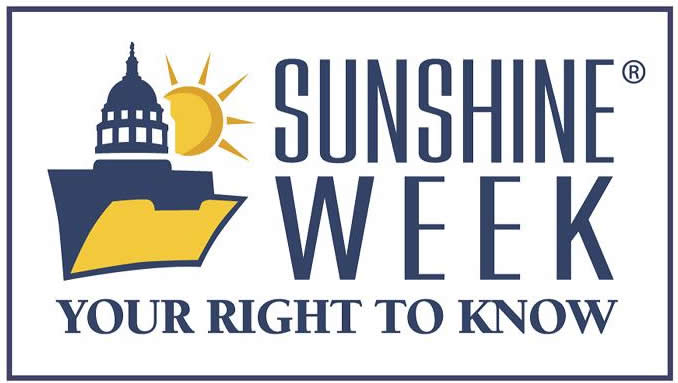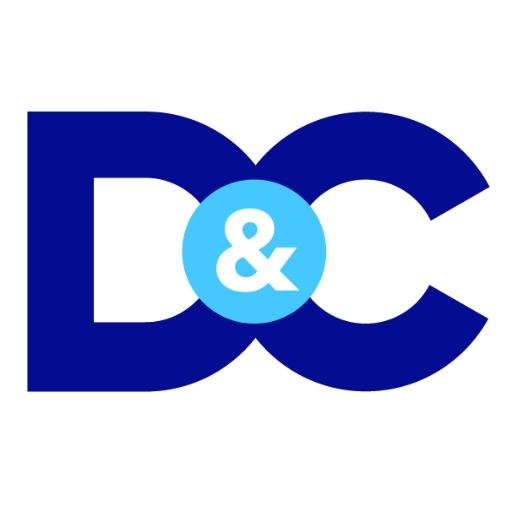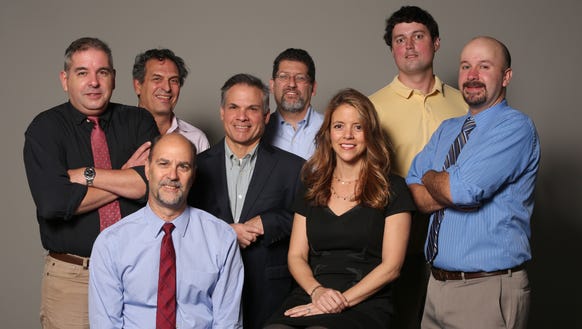|
New York News Publishers Association Home | About | News | Member Services | Advertising Services | NIE | Foundation | Contact Us |
|||
Sunshine Week 2016 - March 13-19

Sunshine Week is a national initiative to promote dialogue about the importance of open government and freedom of information. Participants include news media, civic groups, libraries, nonprofits, schools and all others interested in the public’s right to know. Sunshine Week seeks to enlighten and empower people to play an active role in their government at all levels, and to give them access to information that makes their lives better and their communities stronger.
The American Society of News Editors (ASNE) has collected and posted resources for educators and students for Sunshine Week. Visit their website at www.schooljournalism.org
Click here to access a set of graphic organizers and a list of web resources for teachers about Sunshine Week!
Below you'll find commentary and editorials about the importance of Freedom of Information. This content is available for all NYNPA member publications to reprint with attribution to increase public awareness of Sunshine Week and their right to know. Additional content will be added as it is received.
Committee on Open Government Department of State
|
Snapchat and the Public’s Right to Know: Poof - - and It’s Gone!What if you send a selfie and add some scribbled text and find out later that it was a mistake and got into the wrong hands? What if a government official wants to send an important message, maybe an embarrassing, intimate or politically charged message, but he wants to make sure that the world won’t find out about it? In the olden days of email and Facebook, whatever you sent was in cyberspace, maybe forever, for anyone to see. But today, we can make our messages disappear, because they can be sent via Snapchat. Snapchat offers a variety of options, but the basic idea is that a message can be sent, and then disappears ten seconds later. It’s as though it was never sent. Only our memories keep it alive. What does this have to do with government? Here in New York, we have the Freedom of Information Law, known by many as “FOIL”. That law deals with public access to government records. There’s also the federal Freedom of Information Act (FOIA), which applies to federal agencies, and every state has some sort of an access to records law. Since 1978, FOIL in New York has applied to all government agency records. When it was enacted, there was no internet or email. High tech was an electric typewriter. A distinction between our law and many others is that the term “record” was defined then to mean any information “in any physical form whatsoever” kept, held, filed, produced or reproduced by, with or for an agency. Based on the definition, FOIL clearly applies not only to paper records, but also to email and other electronic communications kept in some physical form. All of that is terrific when it comes to accountability and the possibility of disclosure to the public. But FOIL applies to existing records, and what if the message is sent through Snapchat, and poof! Now it’s gone, and FOIL no longer applies! Can that be legal if its effect defeats the purpose of a law that’s designed to provide access to government records to the public? If it’s the message asking whether you’d like to go to lunch tomorrow, it may have nothing to do with government business, and it can probably disappear legally. However, if the message relates to government officials functions, chances are that it has to be preserved, at least for a while. There are laws, fortunately, that deal with the retention and disposal of government records. Government officials can’t simply get rid of records because they don’t want them around anymore or to prohibit others from gaining access to the records. There are records retention schedules that generally relate to the importance of a record. If it’s the invitation to meet for lunch, the retention period is likely zero, and that kind of email can be destroyed. But if it’s the email message where the high government official directs employees to take certain action, or the message that deals with various rights that a member of the public has exercised, chances are that the record has to be kept for months or even years. Great - - the records retention schedules for years have guaranteed that government keeps records based on rules that involve the significance of the records. But it’s 2016, and technology has changed our lives. If an individual, including a government official, wants to cover his tracks, tell the world, “I never said that”, or that he never communicated with a certain person….Snapchat, for better or worse, can be used to make it seem true. And there may be nothing we can do about it. |
|
Editorial from the Observer-Dispatch
|
Make Transparency a PriorityIt seems terribly odd that the very public New York state Legislature — elected by the people — would be able to keep the shade drawn on records that should be open for their constituents to see. But as is too often the case in Albany, the law that others must abide by doesn’t apply to them. Gov. Andrew Cuomo thinks that it should. And so do we. State lawmakers are largely exempt from the open records law they themselves wrote. As part of national Sunshine Week — the annual celebration of access to public information being observed this week — the Associated Press filed freedom of information requests with the Legislature’s top four leaders, asking them to disclose their schedules and emails during the time period of Feb. 1 to Feb. 7. They refused. How hypocritical. These are people elected by you, doing your business and spending your money, who hide behind a law they think should apply to everyone else but them. But if we’re going to talk about hypocrisy, we cannot leave out the governor. While his office and administrative agencies are not exempt from the law, they often take their sweet time providing it, the Associated Press reports. For instance, while Cuomo’s office does disclose his daily schedule, it’s typically long after the fact. Meanwhile, the AP adds, routine requests for information and correspondence at administrative agencies often prompt only a cursory response. John Kaehny, executive director of the group Reinvent Albany, which tracks government transparency, says that’s disconcerting because most of the critical information about state operations is held by the executive branch, not the legislative. That includes details on billions of dollars of state economic development funding, public authority spending and data at key health, law enforcement and environmental agencies. Rather than play a blame game, state leaders need to get serious about transparent government. Kaehny believes two proposed changes to the Freedom of Information Law would actually weaken the FOI Law. One would make it more difficult for the public to get attorneys’ fees in FOIL cases in which they clearly prevail and an agency acted unreasonably. The other would create a new exception for “Critical Infrastructure.” Kaehny says FOIL already allows agencies to withhold records when disclosure could endanger the life or safety of any person. Transparency groups have repeatedly opposed similar standalone bills, believing they will be used by agencies as an excuse to withhold records they find embarrassing or inconvenient. Reinvent Albany recommends both provisions be rejected — and so do we. Tell your legislator to support transparent government. |
|
Editorial Board Democrat & Chronicle, Rochester
|
Open up closed New York budget talksIt is Sunshine Week, but you wouldn't know it in Albany. Three men are back in a room, deciding how New York should spend about $145 billion in the next fiscal year. Two of the three men are fairly new at this. Assembly Speaker Carl Heastie has been involved once before, but this is Senate Majority Leader John Flanagan's first time. Before the two of them joined Gov. Andrew Cuomo in this shadowy budget process, Sheldon Silver and Dean Skelos were the go-to guys. Alas, neither of them could make it this year. (Apparently, there is some sort of rule against participating after you've been convicted of corruption and are waiting to be sentenced next month in U.S. District Court.) For most of us, the undoing of Silver and Skelos makes it painfully clear that government transparency and real ethics reform must be an integral piece of the state budget process. "Most of us," in this case, does not include Cuomo, Heastie or Flanagan. At the very least, minority leaders in both houses should be invited to take part in all budget negotiations. The more people who bear witness to these closed door sessions, the less likely they will fashion clandestine deals that could never withstand the light of day. In addition, all debate over ethics reform should be done in public view and include input from the full Legislature. There is simply no justification for doing "business as usual." None. Yet, that is what is happening. Serious ethical reforms are nearly absent from the budget process. The few reform proposals on the table are inadequate. And they have little chance of being improved, let alone passed by the full legislature. For example, Cuomo and Heastie support different plans to limit the outside income state lawmakers are allowed to receive. As Silver and Skelos have shown us, some legislators find it hard to resist millions of dollars, even if the money is intended to influence their votes. Without explanation, however, Flanagan says he won't support a cap. Our region's Republican senators, which include Michael Nozzolio, Rich Funke, Joseph Robach, Patrick Gallivan, Michael Ranzenhofer and Robert Ortt, should stand up for their constituents and demand one. And we should be able to watch that happen. All of our lawmakers should be insisting that the LLC loophole, which allows large companies to circumvent campaign donation limits, be closed. Let's see which lawmakers don't.. Cuomo, who has continually promised major ethical reform without actually accomplishing it, has also put forth proposed changes to the Freedom of Information Law. But good government groups are giving them a universal thumbs down. Let us see if a public debate over his ideas will lead to better ones. We are sick and tired of not seeing the sun in Albany. |
|
Times Union, Albany
|
Shade clouds sunshineKeeping public information from the public hardly seems to be in the spirit of openness. Yet on several fronts, that’s just what New York is poised to do. If various proposals offered by Gov. Andrew Cuomo succeed, it could be costlier for citizens to get information, and all but impossible to find out about certain people’s criminal past. And if the Legislature fails to accept one of the governor’s key proposals, its own inner workings will remain as opaque as ever. Among the governor’s more puzzling proposals is a change in the Freedom of Information Law concerning lawsuits brought to force the state or local governments to provide information. Currently, the law says that when people win these suits, courts “may” require the government to cover their legal costs if there was no reasonable basis for the denial, or if it missed statutory deadlines. Mr. Cuomo’s proposal says that courts “shall” award legal costs – a seemingly positive change until you read the fine print. Plaintiffs would have to show the denial was wrong and that the agency disregarded the law. The state says this wouldn’t make it more difficult for the public to recoup legal costs. But then why new language that would appear to put the onus on people to prove the government’s intent? If Mr. Cuomo really wants governments – including the one he oversees – to be more accountable, the simple solution is to say that courts shall award legal costs when the government loses its case. The governor and Assembly also propose to allow criminal records to be sealed under certain circumstances – including if the person committed mostly low-level, non-sexual, non-violent offenses, and stayed out of trouble for ten years. It would effectively wipe the slate clean, as if the crime had never been committed. We appreciate the goal of not having people pay their whole lives for a mistake. But what about, say, a family hiring a home care provider, or a business hiring someone to handle money? Shouldn’t they be able to know whether applicants committed crimes that could raise concerns about their appropriateness for the job? There are other ways to help people who have turned their lives around: courts could, for example, certify eligible ex-cons as rehabilitated. Finally, lawmakers seem disinclined to agree to one of the most important changes in years: to make the Legislature fully subject to the Freedom of Information Law. Right now, the Legislature must release certain obviously public documents – like legislation and committee minutes – but it blocks the public from seeing things that could give greater insight into its operations, such as lawmakers’ official schedules and emails. A legislature committed to transparency would make it easier to force governments to provide public information. It wouldn’t allow people to hide criminal backgrounds. And it wouldn’t stand by laws behind which its own members have hidden for years. |
Editorial Page Editor
|
Fight for your right to knowImagine if you bought a house and you found out there were rooms you weren't allowed to go in. You'd be pretty confused, and probably more than a little ticked off. Well, you own a government. Every inch of it. Every building, every desk, every computer, every paper clip, and all the salaries and all the benefits paid to the people who work in it. You own it. But there are places that the people who work in government won't let you go. There is information they want to keep from you. Not just the major classified nuclear-war-type information, but information that affects all of our lives in a very direct way. Things like employee contracts and reports on the environment, the compensation of all those government employees, information on criminal backgrounds, hirings and firings, and school and municipal budgets. The state Freedom of Information Law (FOIL) and the federal Freedom of Information Act (FOIA) have been used to uncover government corruption and malfeasance, wasteful spending of taxpayer dollars, pollution and contamination-related illness, and police brutality. The state Open Meetings Law is used regularly to ensure public officials discuss public matters in the open instead of behind closed doors. As long as no one challenges their attempts at secrecy, they'll keep doing it. Statewide, battle are currently raging between the citizens, the governor and the Legislature over transparency and public access. One bill relates to the awarding of legal fees to citizens who successfully challenge an arbitrary denial of records. Another would reduce the amount time government bodies can take to release public information. Another relates to a proposal to seal certain criminal records that are now available to the public. And other would provide greater access to the Metropolitan Transportation Authority, which costs New York taxpayers millions. Even though news reporters regularly use the laws to get information, access is not restricted to the media. Here in New York, citizens have access to a very vibrant state agency dedicated to preserving government transparency called the Committee on Open Government. It's run by a man named Robert Freeman, who just spoke at Schenectady County Community College a few weeks ago. The most often-asked question we get, and that Mr. Freeman no doubt gets when someone is denied a record or is shut out of a meeting, is "Can they do that?" The Committee on Open Government helps provide the answer. The committee offers tools on its website to help citizens work their way through the process of accessing records and meetings. It includes concise explanations of the rules, pre-printed Freedom of Information Law requests that allow ordinary folks to fill in the blanks with the information they want, and advisory opinions that can help guide citizens in their quest for information. The site is www.dos.ny.gov/coog. Or just Google "Committee on Open Government," and the website will be the first listing that pops up. This week is what we journalist-types call "Sunshine Week." It's a week annually dedicated to the promotion of open government and the education of citizens on their rights with regard to access to government. Throughout the week, we'll be publishing local and national commentary on the state of open government in New York and the rest of the country, hoping to both inspire and educate you on your right to know. In addition, we invite you to share your thoughts and transparency-related issues on The Gazette's "Your Right to Know" blog at www.dailygazette.com. All the doors should be open to you. |
Executive Editor
|
Sunshine Week: Increase AwarenessSupporters of Sunshine Week hope to make the public more aware of its right to access information about government at any level. The American Society of News Editors and Reporters Committee for Freedom of the Press do a great job planning and promoting this weeklong national effort to bring attention to the importance of government transparency in our society. When it comes to Sunshine Week examples, we may think of global stories like Hillary Clinton's use of a private email server while she was secretary of state or the federal government's attempt to crack down on information "leaks" to news organizations. But the far more common and direct application of "right to know" laws is at the local level:
Those are just a few examples of information the public learned from The Citizen, one small newspaper in one small upstate New York, over the past decade thanks to the New York state Freedom of Information Law. It's stories like these that underscore the essence of what Sunshine Week is about. The Citizen is not unique when it comes to using freedom of information concepts. Hundreds of New York news organizations and thousands of private residents gather information about their local government every year thanks to FOIL. But truth be told, there should be many more requests. Too often, people make the mistake of assuming that FOIL is just for the media. It's not. It exists because it's a vital tool for an effective democracy, which can only exist with a thoroughly and accurately formed voting public. |
Investigative Reporter
|
Hidden from view: What New York state won’t let you seeLooking for records on a police officer's job performance? Or for a recording of a 911 call? You are out of luck. While many records are available under the Freedom of Information Law, there are some you won't get to see. These documents are kept confidential because releasing them would be an invasion of privacy or might jeopardize a law enforcement investigation or a court case. Anyone can use the Freedom of Information Law, also known as FOIL, to gain access to public records detailing how tax dollars are spent or how the government operates. And many people — not just journalists or researchers — do. The law applies to all of a state or local government's records, including paper, electronic, databases and video footage. READ: How to get access to public records Access to public information is the theme of Sunshine Week, which runs from today, Sunday, through Saturday. Founded by the American Society of News Editors in 2005, the media-led initiative calls attention to laws requiring government openness and transparency. Participants include news media, civic groups, libraries, nonprofits, schools and others interested in the public's right to know. A number of records are confidential under state or federal law, which generally means an agency can't release them even if it wants to. And laws governing public records vary from state to state. For instance, New York is one of the only states to exempt police personnel files from its open-records law. FOIL is based on the "presumption of access, which means that all agency records are available, except those records or portions of records that fall within the categories of deniable records listed in the law," said Robert Freeman, longtime executive director of the state Committee on Open Government, a branch of New York's Department of State that oversees and advises the government, public and news media on FOIL, open meetings and other issues. Confidentiality If a record is confidential under state or federal law, an agency is generally prohibited from releasing it. Dozens of records are confidential. Here is a partial list and the laws keeping them private:
Some records are partially confidential. For instance, specific details of divorce or separation agreements are typically private under Domestic Relations Law, but certificates of dispositions, which show the end results of the proceedings, are public. Even confidential documents might become part of a public record, such as if they are filed as part of a court case. Court case records don't fall under FOIL, but they're generally public under Judiciary Law. The law doesn't define which specific records are open, said Freeman. "We have lots of laws and they are not necessarily consistent," Freeman said. Some records are always available, including minutes of a public meeting, tax assessment records, a municipality's budget, records of public employees' salaries and voter registration records. And most applicants will get their FOIL requests filled without running into any major obstacles, said Mark Fowler, a partner at the Manhattan-based Satterlee, Stephens, Burke & Burke firm, which specializes in media law and has worked on cases with Gannett news organizations. The Poughkeepsie Journal often uses FOIL in its daily and investigative reporting. |
Watchdog Strategist , Newsroom Leadership Journal News,
|
What's this Pound thing?My first investigative story came about quite by accident. I wouldn't say I was green at the time, but fertilizer could have come in handy. I had just turned in a feature on the troubles that wives of inmates were having visiting their husbands in one of New Jersey's toughest prisons. The long wait times. The arbitrary visiting hours. The excessive and intimate pat downs by guards. And the less-than-pristine conditions once they did get inside. The state Department of Corrections promised to look into the wives' complaints, and the piece felt Pulitzer-like. About 20 minutes later, the editor bolted out of his office. "Hey, Scandale. You know what they'll call you if we run this like you wrote it?" he bellowed, waving a printout of my story. "Wrong way. Wrong Way Scandale will be your name forever. Get in here." Buried in like the 26th paragraph was this portion that explained how some inmates were having sexual relations with women, including quite possibly prostitutes, right there in the laundry room that doubled as the visiting center in colder months. OK, so maybe that was a better angle than a group of women waiting in the rain to see their beloveds. But like I said, I was as green as outfield grass. The new version, which took years off my life to confirm, sparked a serious crackdown on the extracurricular activities and more than one threat from the prison population. Ahem. That sent me on a journey to look deeper into the criminal justice system and learn more about what happens behind the walls. If you understand how much of your tax money goes toward jails and prisons in New York, you'd WANT to know, too. But to obtain that kind of information takes more than a phone call or a visit to the city clerk. Which is where Sunshine Week comes in. A national effort by the nation's media corps to celebrate open government, Sunshine Week each year hopes to, well, shine more light on the need for, and the challenges facing, investigative journalism. So it seemed appropriate to launch our Watchdog blog this week. Coincidentally, 35 year after my fledgling watchdog work on the New Jersey prisons, one of our watchdog reporters, Jorge Fitz-Gibbon, looked into our jails and prisons, specifically what was being smuggled into the three county jails in the Lower Hudson Valley region, as well as six state prison facilities. It became an issue after the upstate prison escape of two convicted murderers, who used a file smuggled in a meatloaf, and the sickening of Westchester County Jail inmates from smuggled synthetic marijuana. His story can be found here: Jailhouse Smuggling: see what's getting inside the walls. He also wrote a companion piece, a "sidebar" in news jargon, pertinent to this blog. In it, Fitz-Gibbon, a savvy and relentless reporter, detailed the challenge of obtaining public records under the state's Freedom of Information Law. The law clearly outlines what must be released to the public and when, but officials charged with releasing these documents seemed to have a different interpretation. It's just one example of the challenges facing investigative reporters in New York and across the country. This blog will become the home for all things investigative for The Journal News/lohud. Our team will add insight to their stories, explaining the impact of our reporting (laws changed, investigations launched, and so on),and providing some behind-the-scenes information, some "How we got the story" tales. Others in the newsroom, who write about specialized topics such as education and real estate or who cover specific regions , will also be contributing to the investigative report. We will also post examples of other good investigative stories from around the USA Today Network, of which we are part, as well as pieces from other news outlets. We'll talk about when your public officials refuse to relinquish public documents, and when they simply ignore requests, not an uncommon tactic. We'll involve you, too, in the process. Despite cries that there is no more investigative journalism today because of cutbacks and other factors, this blog will demonstrate the opposite. As technological tools advance and freedom of information laws are strengthened and defended, today's journalists are more dedicated than ever to deliver important stories that matter to you. You'll be learning more about The Journal News/lohud's team of investigative reporters, too. They're an interesting bunch, as you can tell from this photo. Oh, the pound thing. Yes, well, the company has branded us as watchdogs. And we sit together ... in ... yes, a pound, of sorts.
|
Additional editorials from around NYS will be added to this page as they are received. For more Sunshine Week ideas and resources from across the country, go to https://sunshineweek.rcfp.org/
Still confused?
Maybe Bob the Squirrel can explain it in a “nutshell.” To view this original cartoon by Frank Page click on Bob's image below.
 |
Here's a cartoon by Adam Zyglus from the Buffalo News about Sunshine, Ethics Reform and Politics in Albany.
 |
This page was last updated 3/18/2016.
Please note: Previous Sunshine Week content is still available for download and use.
Click here to access the eight newspaper in education features created for 2012 (3 column x 8 inches) - an overview of NYS FOIL, Open Meetings, How to gain access to records and one freature on Freedom of Information and NYS Courts.
Click here to access the five-part series of features highlights just a few of the websites with reports and other data that may be of interest to students and the general public. Graphic organizers to accompany these features are also available here as PDF download. The topics included:
• What is “E-Government”? – A brief summary of our “Cyber Sunshine” focus
• Vehicle Safety – Highway Safety Data
• Food Safety – Restaurant Inspection Reports
• School Safety – Violence and Disruptive Incident Report
If you'd like to make a donation to the NYNPA Newspaper In Education program, simply press the Donation button below.
Your generous gift will be processed through the New York Newspapers Foundation's secure PayPal account.
New York News Publishers Association, Inc.
Phone/Fax (518) 449-1667 - Toll-free: (800) 777-1667







